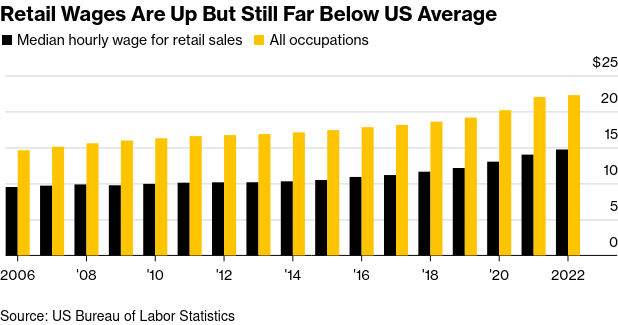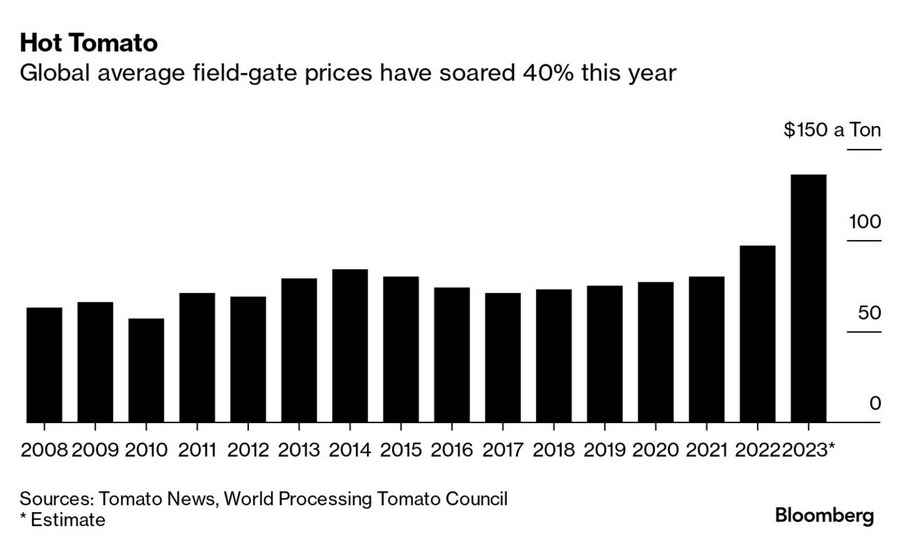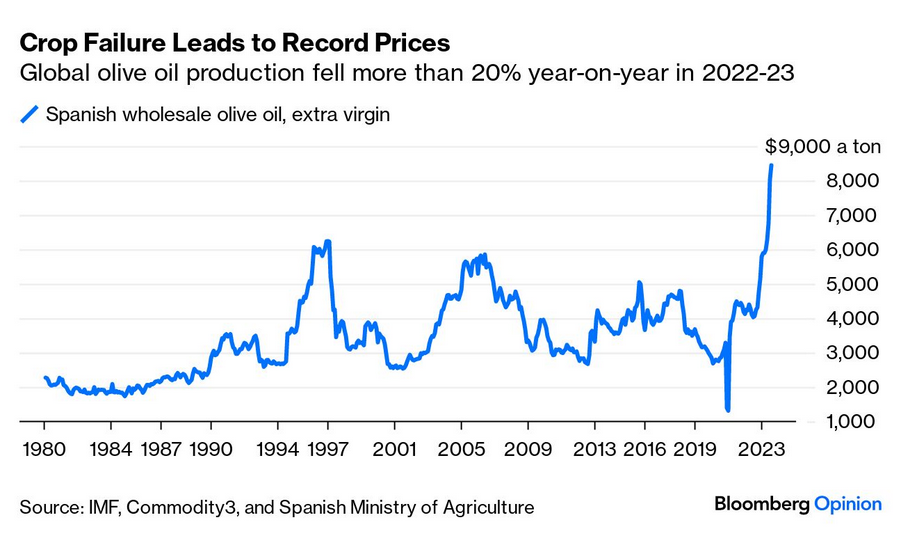September 8, 2023
USA long-term unemployed numbers remain high
- Along with wage-share, long-term unemployment is an important measure in the capitalist economy. As long-term unemployment rises, the wage share usually drops: a significant boost to capital profits even as they are under pressure from reduced demand.
- Not only is long-term unemployment continuing to be higher than the previous few years, there is a lessening of the tightness in the labour market.
- The result is a reversing of the short-lived upper-hand that workers had in driving wage growth without collective power (i.e., by simply the employer understanding you could likely get a better job elsewhere).

-
One place that this is not the case is in the USA's retail sector, where the quit rate continues to be 70% higher than in other industries. Turnover in the industry is nearly double it was a few years ago.
- The major issue? Violence and harassment in the workplace.
- And wages:

Tomato growing
You thought last year was bad for the tomato with the extreme drought in Italy:

And it’s not just Italy suffering — adverse conditions have roiled India’s tomato supply and sent prices surging.
While Italian production will be little changed from last year, it’ll be roughly a 10th smaller than in 2021. Farmers and processors in the north in May agreed to hike prices 40% this season to a record high.
Of course, it is not just tomatoes:

Heavy rains have devastated local lime crops, sending prices up by almost 70% just in August. (BN)
Oceans: "disturbing misalignment of promises and action"
It isn't just climate change policies that we are backtracking on.
- All 17 United Nations Sustainable Development Goals (SDGs) will fail to be accomplished by 2030
- Many of our governments are running away from these goals.
- the 14th goal — to conserve and sustainably use the oceans — has actually been going backwards since the 2015 UN summit at which the SDGs were agreed
- SDG 14 comprises ten targets and pledges intended to address acidification, pollution, overfishing, biodiversity loss and other ocean ills
- five have either stagnated or regressed. (Nature)
Oceans are a source of work for 100s of millions of people and a source of food for a significant chunk of the planet. Add to this that the majority of the planet is water and you have a rather large problem on our hands that is directly related to other climate policies.
The two-faced nature of the SDGs policies is well known. Officials say one thing when the camera is on them, but governments fail to address the issue with any substantive policy.
- EU Spanish governments support regulation of EU seas, but push for deregulation of fishing in the rest of the world
- French and Spanish ships harvest up to one-third of tuna in the Indian Ocean with the aid of fish-aggregating devices
- Both countries are aggressive in undermining action outside of the EU waters.
But the one gap science alone cannot fill is a lack of leadership, something that is most evident in the .
In June, Norway announced new permits for offshore oil and gas drilling worth $18.5 billion, and proposed opening some 280,000 square kilometres of its waters to deep-sea mining, a nascent industry that risks wreaking havoc on poorly understood ocean ecosystems.
Similarly, France, also the host nation for an upcoming UN Ocean Conference in 2025, is opposing a measure to exclude a destructive fishing practice called bottom trawling from marine protected areas in the European Union.